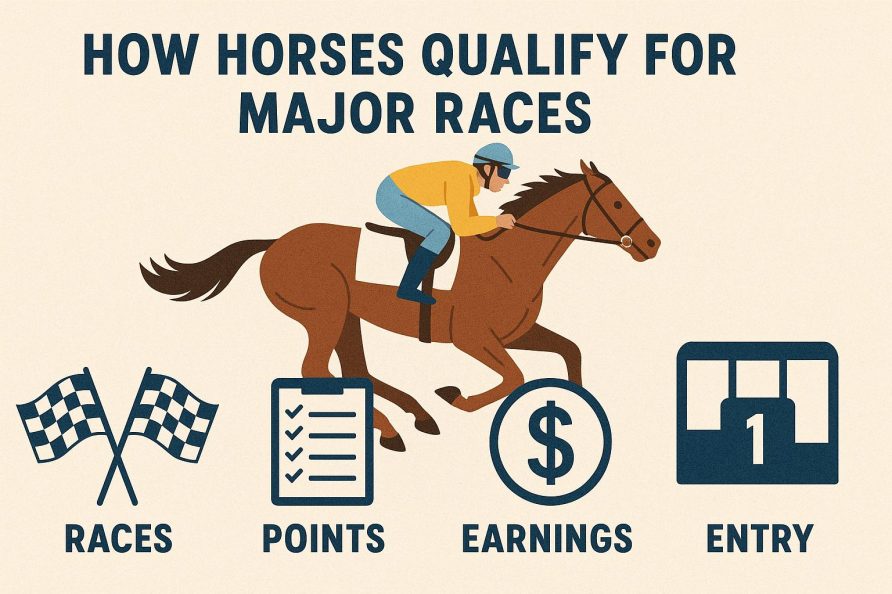The Importance of Sponsorship in Horse Racing
The intersection of sports and business is most evident in sponsorship, which plays a vital role in the horse racing industry. The sport, steeped in tradition and excitement, relies heavily on sponsorship for its development and sustainability. Sponsors make invaluable contributions by covering costs associated with organizing events, maintaining tracks, and ensuring the welfare of the horses engaged in this captivating sport.
Financial Support
Financial stability serves as the backbone of any successful sport, and horse racing is no exception. In this sport, sponsorship provides essential funding for a range of operations, from racecourse operations to prize money enhancements and extensive promotional activities. Given the substantial costs involved in conducting horse racing events, sponsors’ financial commitments are pivotal to the sport’s enduring success.
Enhancing Prize Money
Enhancing prize money via sponsorship significantly boosts a race’s appeal, attracting a higher caliber of participants. Increased prize funds draw top-tier horses, seasoned jockeys, and even new talents seeking recognition. This also elevates the status of the races, helping the sport gain global recognition and interest. Ample prize money thus contributes to stimulating a broader audience’s interest, benefiting both the sponsors and the sport itself.
Marketing and Promotion
Sponsors play key roles in the marketing and promotion of horse racing events. In partnership with event organizers, they orchestrate varied campaigns and secure media coverage, amplifying the visibility of horse racing. This expansive coverage allows horse racing to reach potential spectators who might previously have had no interaction with or interest in the sport. By boosting its visibility, sponsorship effectively opens the door to a wider audience, potentially increasing event attendance and viewership.
Brand Association and Loyalty
For companies, associating their brand with prestigious horse racing events is a strategic move offering multiple benefits. These brands are exposed to a targeted, engaged audience deeply invested in the sport. Additionally, the prestige of a horse race reflects on the associated brands, augmenting their credibility and status among consumers. This fosters brand loyalty among spectators who share an enthusiasm for horse racing, offering companies involved a fertile ground for marketing endeavors.
Development of Facilities
Beyond the excitement of the races themselves, sponsorship plays a crucial role in the development and maintenance of racing facilities. Financial backing from sponsors is often allocated to improving racecourse infrastructure, enhancing the quality of spectator amenities, and ensuring high standards of safety and comfort are met. These enhancements are essential for attracting both spectators and participants, positively contributing to the sport’s overall growth and popularity.
Technology and Innovation
Sponsorship in horse racing can fuel technological advancements and innovation. Adequate funding enables racetracks to adopt cutting-edge technology aimed at revolutionizing the racing experience. Innovations in timing systems, sophisticated data analysis, and comprehensive broadcasting options flourish with sponsors’ contributions, representing an investment in the sport’s future.
Horse and Athlete Welfare
Another critical area where sponsorship funds make a significant impact is in the care and welfare of the horses and athletes. Racing organizations often redirect sponsorship money into ensuring the health and safety of the horses, providing top-notch veterinary care, and maintaining healthy training environments. On the human side, jockeys and trainers benefit from improved facilities and resources that the additional funding can support.
Community Impact
Sponsorship also reaches beyond the racecourse, affecting the broader community. The economic benefits of hosting well-sponsored events extend to local businesses, such as hotels, restaurants, and shops, which attract more customers during race meetings. Moreover, sponsors often engage in community projects, leaving positive, lasting legacies that underscore their commitment to not just the sport, but the surrounding community as well.
Raising the Bar for Competencies
Financial support from sponsors further helps in developing competencies among stakeholders in the horse racing industry. Training programs for jockeys, trainers, and other staff see significant improvements through sponsors’ contributions, allowing skills to progress and standards to rise. By investing in human resources, sponsors effectively ensure that horse racing continues to thrive as a professional and competitive sport.
Globalization and Exchange
Sponsorship accelerates the globalization of horse racing, facilitating international exchanges and competition. Well-funded events can attract participants from across the globe, encouraging a diverse mix of cultures and traditions within the racing community. This exchange enriches the sport, infusing it with new energy and perspectives contributing to its worldwide appeal and prestige.
Conclusion
In summary, the role of sponsorship in horse racing cannot be overstated. By providing crucial financial support, increasing prize money, and enhancing marketing efforts, sponsors secure the sport’s vibrancy and sustainability. The partnerships between racing organizations and their sponsors are mutually beneficial, contributing significantly to the development and global appeal of horse racing. These collaborations foster growth, innovation, and a shared commitment to realizing the full potential of the sport. For enthusiasts and prospective sponsors keen on exploring opportunities or understanding sponsorship’s profound impact further, numerous resources are available from entities involved in horse racing governance, such as the British Horseracing Authority or other governance bodies operating within the industry.





